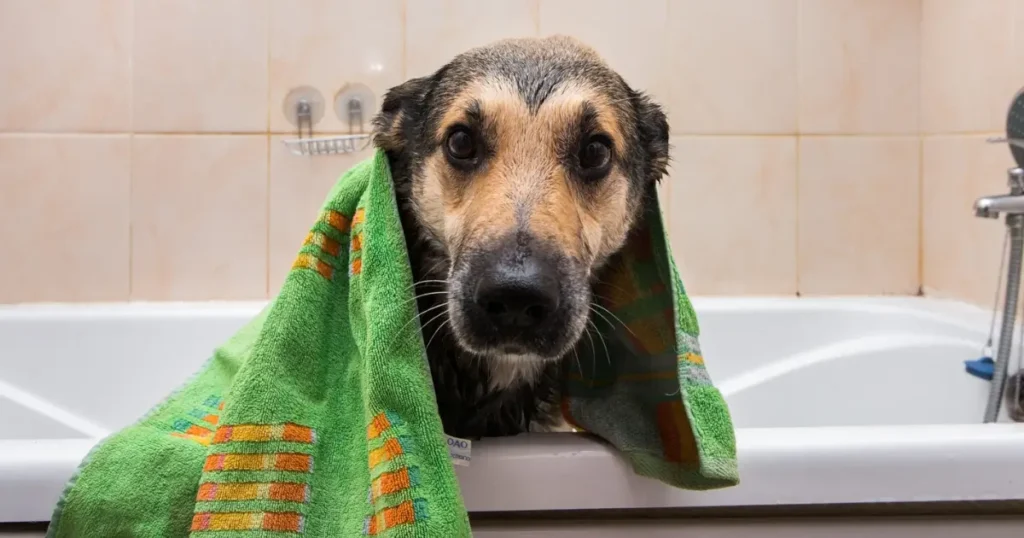
Photo by Aleksandr Zotov / Getty Images
By Christina Carrières – The Fur-Bearers’ Advisory Board Member
Your pooch was sprayed – the skunk ran away, and you and your furry companion safely got home. Now… The smell! How can you get rid of it? Make your own shampoo solution.
In a non-metal container, mix the following ingredients:
- 1L (950 mL) 3% hydrogen peroxide
- 1/4 cup baking soda
- 1 teaspoon of liquid unscented/non-scrubbing dish soap
Your companion will likely require multiple baths depending on the severity of the spray and how long ago it occurred. You can also purchase commercially available skunk odor removal shampoos such as Skunk Off at a local pet store, online, or from a veterinary clinic. Rinse well! After the baths, you can also apply a generous amount of a solution of water and vinegar to the fur. No need to rinse it off.
Can being sprayed cause more issues than just the smell?
Yes! Especially if your companion has been sprays in the eyes or mouth.
Eyes: Copious flushing with saline (NaCl 0.9%) for several minutes is recommended immediately after contact. The area around the eyes can be cleansed with half-strength Johnson’s baby shampoo and then flushed again with saline. A topical preservative-free artificial tear may also help. It is important to monitor your companion’s eye closely as they can develop secondary corneal ulcers. Any signs of discomfort should be assessed by a veterinarian for further treatment.
Mouth: Although it is uncommon, when an animal is heavily sprayed by a skunk, they can develop toxic shock syndrome and it is extremely serious. It can damage their red blood cells, causing a number of serious systemic complication including anemia and multi-organ failure. If your companion exhibits any neurological signs, vomiting, diarrhea, lethargy, weakness, pale gums, anorexia, or unusual behaviour following a spray event, seek veterinary care immediately. Your companion should be monitored closely for 12-24 hours following the event.
If your companion was also bit and you reside in an area where rabies in skunks is present, contact your veterinarian immediately. Fortunately, in British Columbia, only bats are considered to be a rabies vector, but ensuring that your companion is up to date with their rabies vaccine is a good precaution to take.
The best medicine is always prevention! Skunks tend to be active at night and will only spray if they feel threatened. Before spraying, skunks may hiss, stamp their feet, and begin lifting their back end. Keeping your dog leashed when skunks may be active and near by is the best way to prevent an incident.
Christina Carrières is a Registered Veterinary Technician (RVT) and a Certified Wildlife Rehabilitator (CWR). She is the president of Wildlife Rehabilitators’ Network of BC (WRNBC), a director at large for Oiled Wildlife Society of BC (OWS), and a director at large for Interior Wildlife Rehabilitation Society (IWRS).
